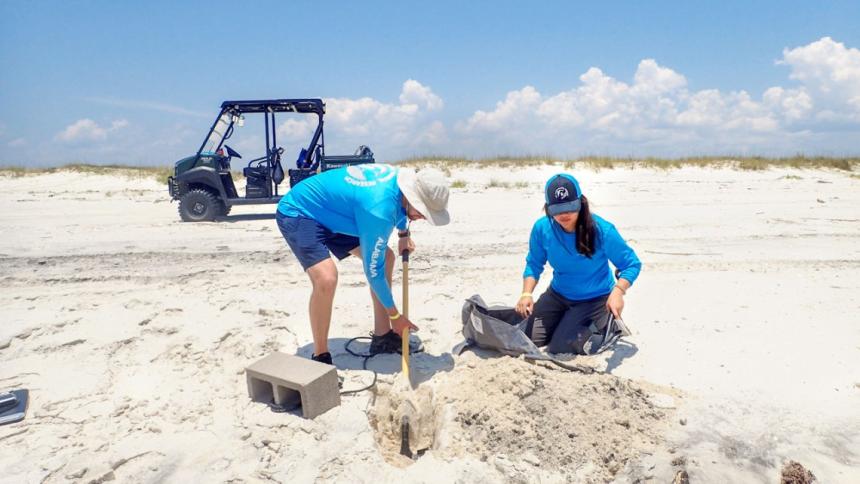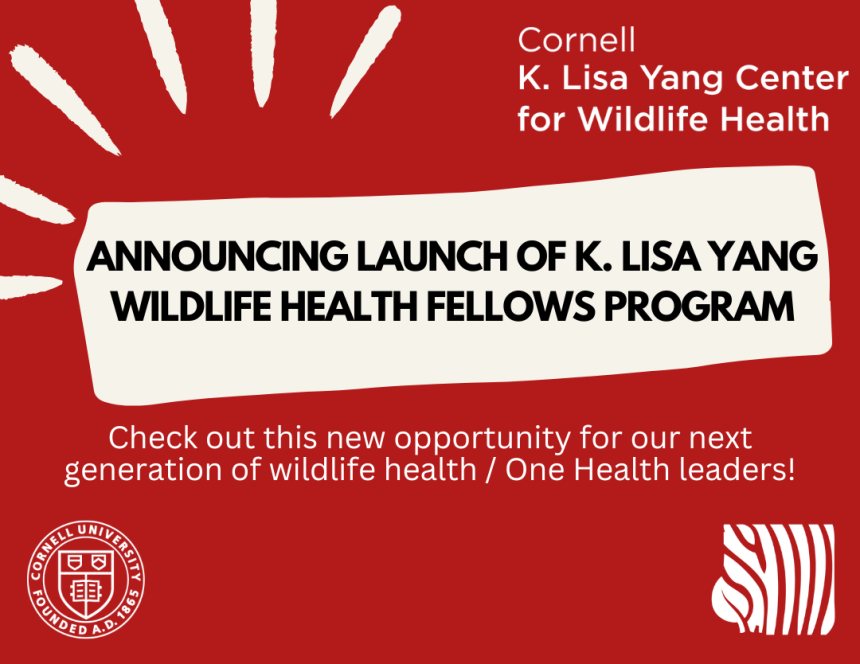In the News

October 07, 2024
Growing pressures on the environment are increasing needs and work opportunities for veterinarians in wildlife conservation. A gift of $35 million received by the Cornell University College of Veterinary Medicine — the largest in the school's history — will help fund activities of its wildlife health center into the future.

September 27, 2024
Better surveillance of marine mammals that wash up on beaches and in marshes will provide more accurate estimates of how many individuals of many species are dying and the causes of those deaths, according to a new study co-authored by Cornell's Dr. Jennifer Bloodgood.

August 23, 2024
I grab a pair of gloves from the hospital and walk out into the tank area. I am not sure why I put gloves on - 90% of the time they get soaked anyway. As I approach the tank, the other veterinary extern heads into the storage area to grab a net. Turns out there is no need....
Blog
August 19, 2024
Serving as the veterinarian for the CWHL keeps me on my toes, and July has been no exception! On a given day, I might be coordinating with our DEC or regional partners, working on a paper or grant, giving a presentation, mentoring interns or students, and/or working out in the “field” on a wildlife health project....

Announcement
May 15, 2024
Check out this new opportunity for our next generation of wildlife health / One Health leaders!

Blog
February 23, 2024
Have you ever wondered about the journeys taken by certain wildlife veterinarians to get to where they are today? Recently, I had the privilege of chatting with Dr. Jennifer Bloodgood over coffee to delve into this very topic....

February 14, 2024
Cornell University’s College of Veterinary Medicine announced a gift of $35 million to support the Cornell Wildlife Health Center, which has been renamed to the Cornell K. Lisa Yang Center for Wildlife Health in recognition of the scale of commitment to planetary health from the donor, Lisa Yang.

February 09, 2024
This summer, I embarked on an unforgettable journey into the heart of aquatic veterinary medicine with Dr. Tim Miller-Morgan at the Hatfield Marine Science Center (HMSC) in Newport, Oregon. The center is Oregon State University’s coastal campus, also serving as a marine science laboratory and an oceanographic research base for six state and federal agencies....

January 30, 2024
A transformational gift from philanthropist and Cornell alumna K. Lisa Yang ’74 will endow and rename the Cornell Wildlife Health Center as the Cornell K. Lisa Yang Center for Wildlife Health at the College of Veterinary Medicine.

November 08, 2023
For my last summer before clinical rotations, I wanted to gain experience with marine animals. I was accepted as an intern with the International Fund for Animal Welfare (IFAW) Marine Mammal Rescue & Research (MMRR) program in Cape Cod, Massachusetts, a unique geographical area where tides and coastlines can suddenly trap a dolphin or whale in inches of water....
